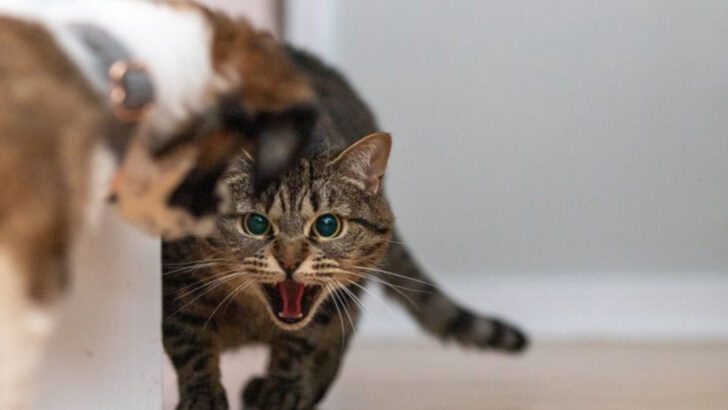Your cat has a lot to say—but are you really listening?
Some cats are naturally chatty, but if your feline is meowing non-stop, there’s a reason behind the noise. Maybe they’re hungry. Maybe they’re bored. Or maybe they’re plotting world domination and you’re just not getting the message.
From simple demands to serious concerns, excessive meowing can mean anything from “feed me now” to “something’s wrong.” The tricky part? Figuring out which one it is before your cat drives you up the wall.
Here are 12 possible reasons your cat won’t stop meowing—and what you can do about it.
Hunger

Your cat might be meowing excessively because it’s hungry. Cats communicate their hunger by vocalizing more than usual, especially around meal times. If your cat meows near its food bowl or in the kitchen, it’s likely asking for food.
Ensure your cat’s feeding schedule is consistent and it’s getting the right amount of nutrition. Sometimes, a cat may need more frequent, smaller meals throughout the day. Consider talking to your vet about your cat’s dietary needs. Keeping your cat’s food bowl clean and full can help reduce these hunger-driven meows.
Attention Seeking
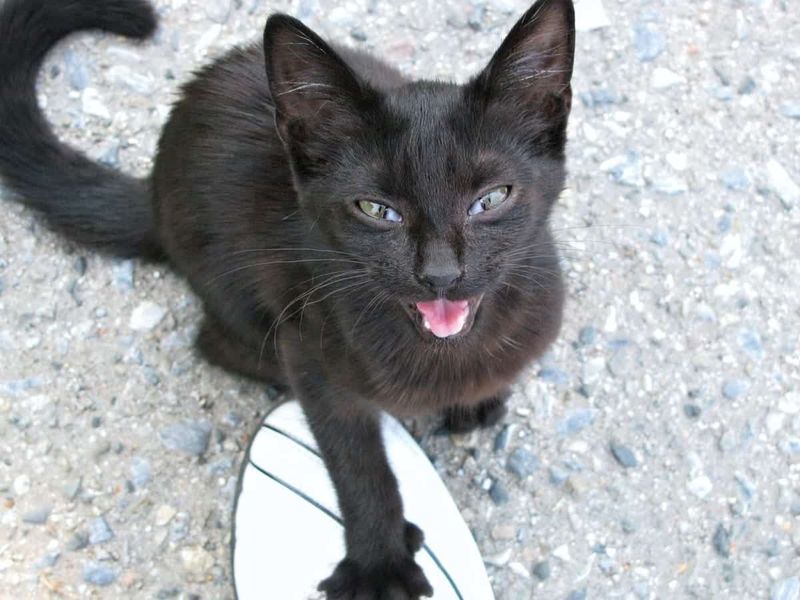
Cats often meow to get attention from their humans. If your cat is meowing excessively when you are around, it might just want some playtime or petting.
Spending quality time with your cat can often curb this behavior. Engage your cat with toys or interactive play sessions. Ensure your feline friend doesn’t feel ignored by creating a routine that includes moments dedicated to them. Reducing loneliness can often reduce the frequency of attention-seeking meows. Investing time in your cat strengthens your bond and creates a happier home environment.
Stress or Anxiety
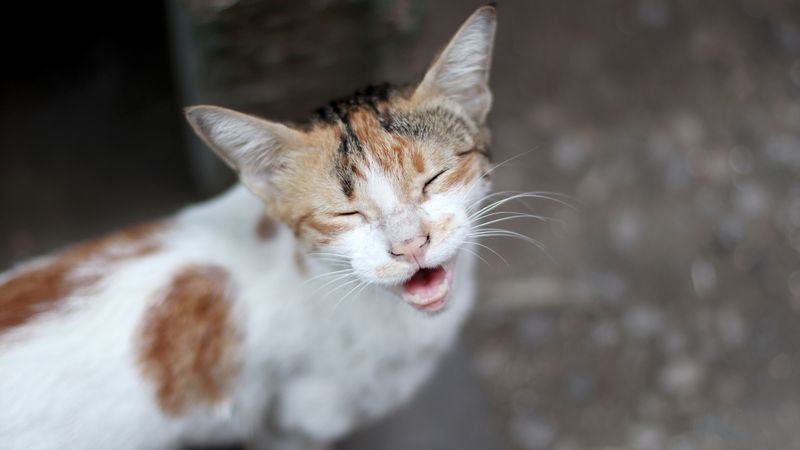
Changes in environment or routine can cause your cat to feel stressed or anxious, leading to increased meowing. This might happen if you’ve recently moved, introduced a new pet, or changed your schedule.
To help your cat relax, create a calm environment with hiding spaces. Try using pheromone diffusers to soothe your furry friend. Spending extra time with your cat can also help alleviate its anxiety. Remember, patience and understanding are key. With time and care, you can help your cat adjust and reduce stress-induced vocalizations.
Medical Issues
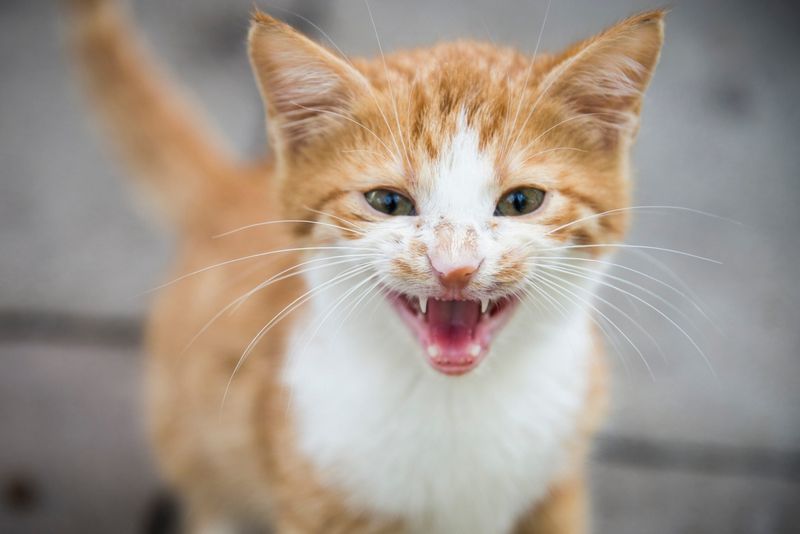
Excessive meowing can be a sign of underlying medical issues. Cats may vocalize more when they are in pain, discomfort, or have health problems like hyperthyroidism or dental issues.
If your cat’s meowing seems unusual or it’s accompanied by other symptoms, it’s essential to consult a veterinarian. Regular check-ups are crucial in keeping track of your cat’s health. Early detection and treatment can prevent many health-related issues. Listen to your cat’s cues, as addressing medical needs promptly can improve its quality of life and reduce distress.
Old Age
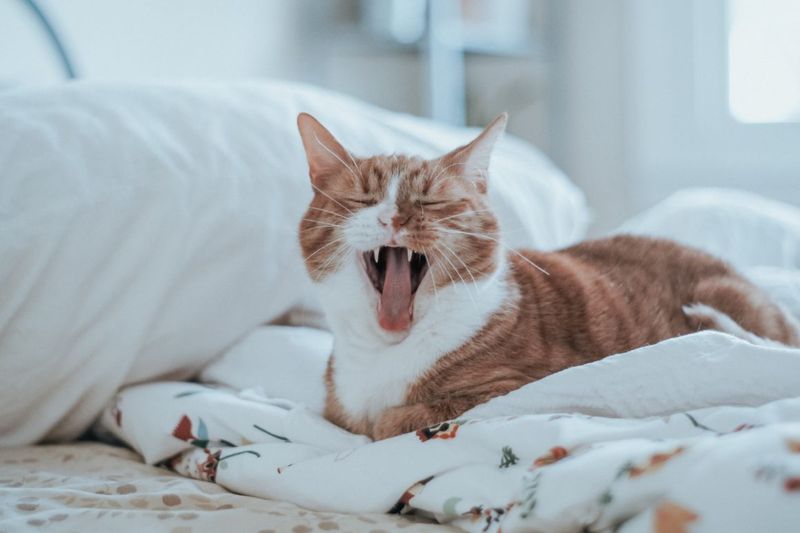
As cats age, they may start to meow more frequently. This can be due to cognitive dysfunction or sensory changes, such as hearing loss. An older cat might feel disoriented or confused, leading to increased vocalization.
Providing a secure and comfortable environment can help your aging cat feel more at ease. Make sure its basic needs are easily accessible, like food, water, and litter boxes. Consulting your vet about age-related changes can provide insights and solutions to make life easier for your senior cat. Compassion and understanding go a long way in comforting an elderly pet.
Mating Behavior
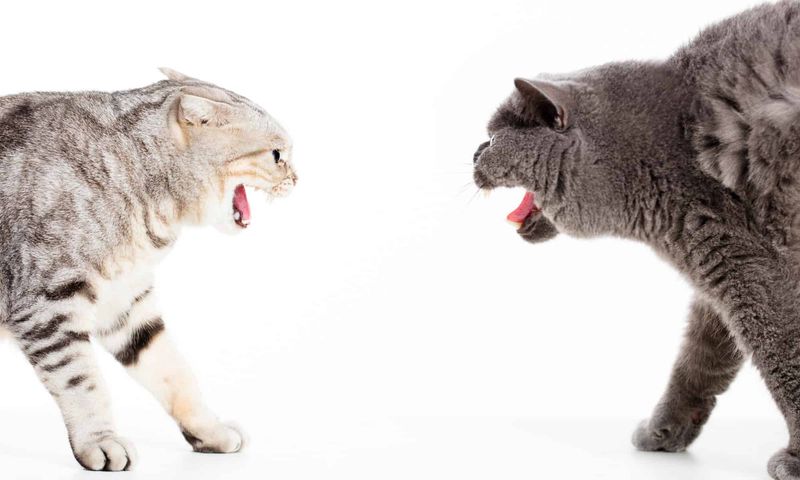
During mating season, cats can become more vocal. Unspayed or unneutered cats might exhibit loud, persistent meowing as part of their mating calls. This behavior is normal, but it can be quite loud and disruptive.
Spaying or neutering your cat is an effective way to reduce this type of vocalization. These procedures not only curb excessive meowing but also prevent unwanted litters and have health benefits for your pet. Consulting your vet about the right time for these procedures can be helpful. By understanding your cat’s behavior, you can make informed decisions about its care.
Territorial Behavior
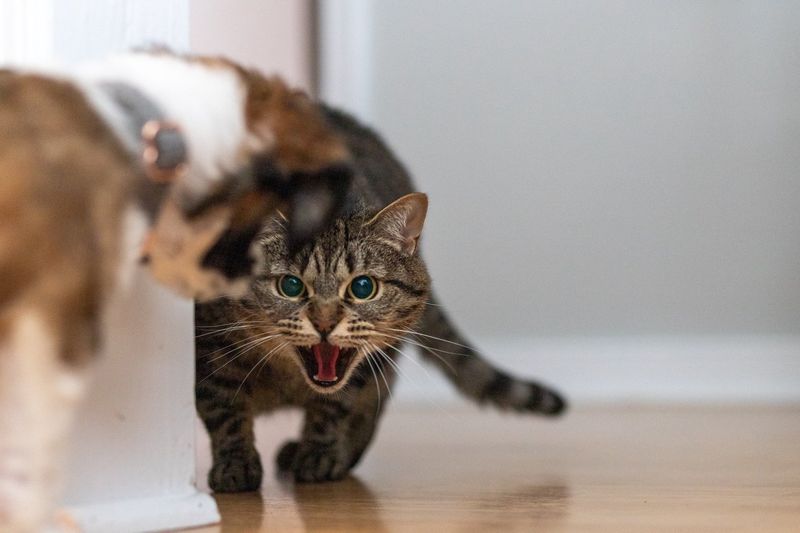
Cats are territorial creatures, and they may meow excessively if they feel their territory is being threatened. This can happen if they see another cat outside or if there’s a change in their environment.
To help your cat feel secure, ensure it has a designated space to call its own. You might want to block the view of outdoor cats with curtains or blinds. Providing your cat with high spaces or perches can also help it feel more secure. Addressing territorial issues can reduce stress and lessen the need for assertive meowing.
Boredom
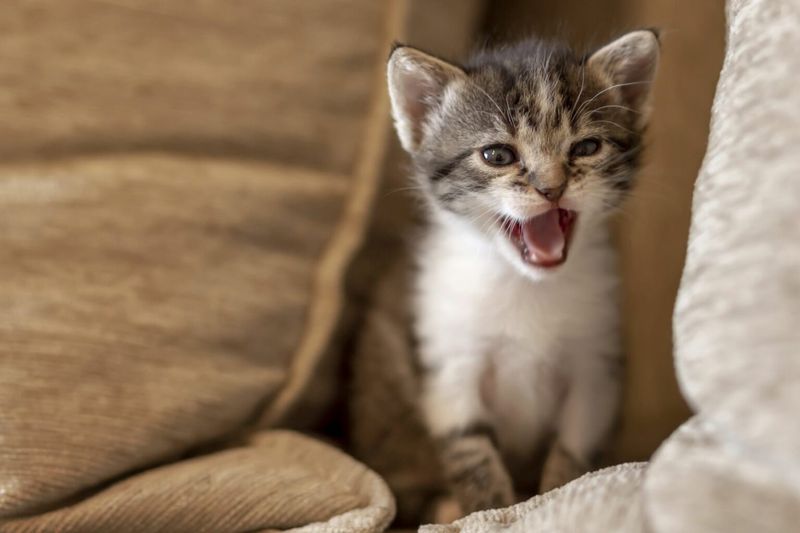
Cats can become bored and meow more when they lack stimulation. This might happen if they’re left alone for long periods or don’t have enough toys or activities.
Providing a variety of toys, interactive puzzles, and regular playtime can keep your cat entertained and mentally stimulated. Consider rotating toys to keep things interesting. Creating a stimulating environment with climbing structures or window perches can also reduce boredom. By keeping your cat engaged, you can minimize boredom-related meowing and promote a happier, healthier lifestyle.
Greeting Behavior
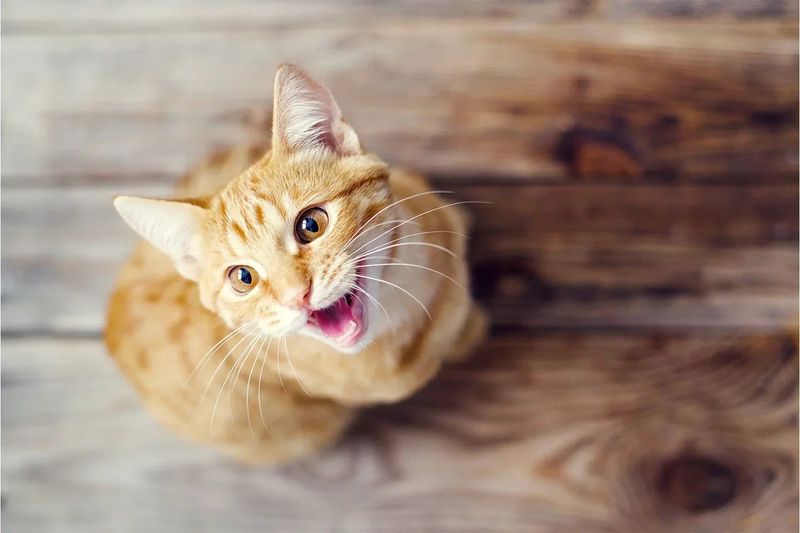
Some cats meow as a form of greeting, especially when their humans come home. This behavior is typically friendly and a way for your cat to say hello.
Acknowledging your cat’s greeting with a gentle pet or a soft response can satisfy its need for interaction. Make a habit of greeting your cat to reinforce positive behavior. This type of meowing is generally harmless and part of your cat’s social nature. Embracing these small interactions can enhance your relationship and make your cat feel appreciated and loved.
Seeking Assistance
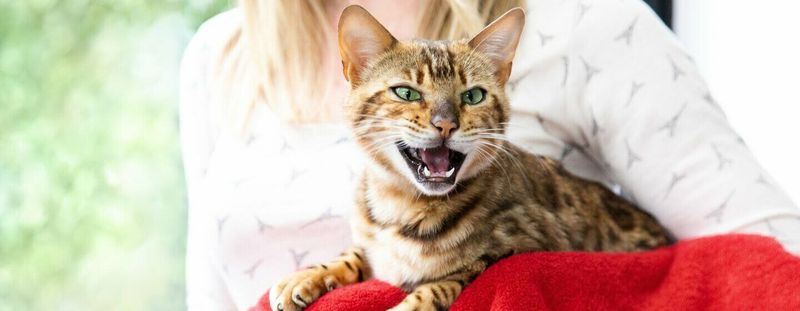
Cats may meow to seek assistance, such as wanting help to reach a favorite spot or needing to be let outside. This type of meowing is often urgent and persistent.
Pay attention to your cat’s cues to understand what assistance it might need. If your cat frequently meows for help, consider making its environment more accessible. Installing pet doors or providing steps to high places can empower your cat to be more independent. Understanding and addressing these needs can reduce frustration for both you and your cat.
Habitual Meowing
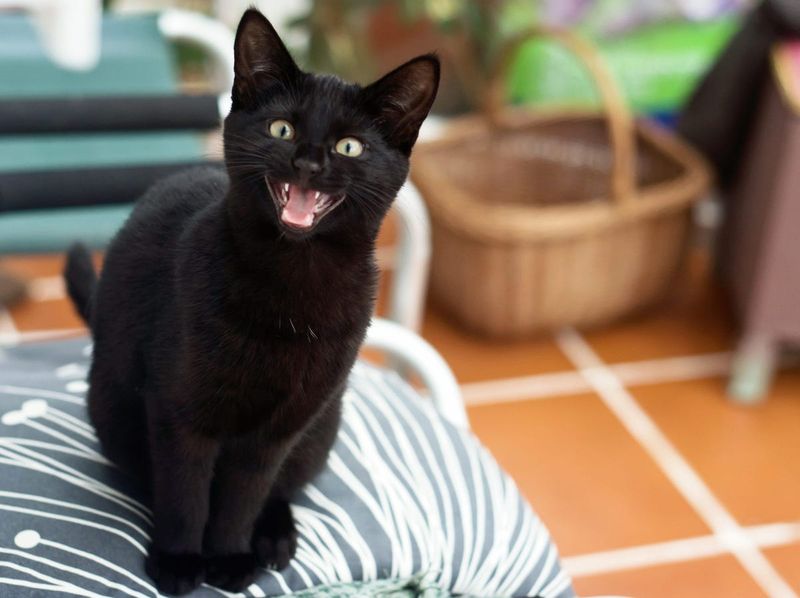
Sometimes, meowing becomes a habit, especially if it has been reinforced over time by getting attention or treats. In cases where meowing occurs without apparent cause, it might simply be habitual.
To address this, avoid reinforcing unwanted meowing by not rewarding it with attention. Instead, wait for quiet moments to interact with your cat. Consistency is key in changing habitual behavior. If needed, consult a cat behaviorist for additional strategies. Understanding the root of habitual meowing can help in creating a peaceful living environment for you and your cat.
Curiosity or Exploration
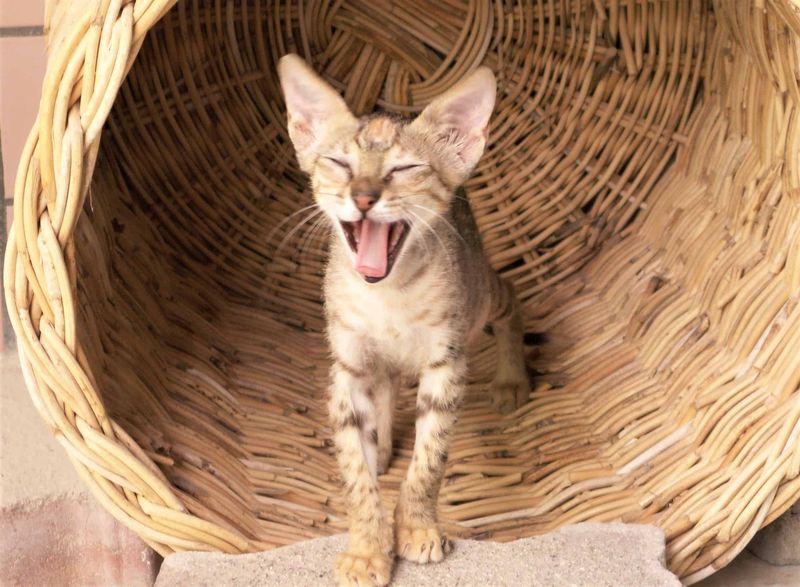
Cats are naturally curious creatures and may meow when they’re exploring or encountering new things. This meowing often sounds inquisitive and is a sign of your cat’s interest in its surroundings.
Encouraging exploration with safe, new experiences can be beneficial. Providing a variety of stimuli, like new toys or boxes, can satisfy your cat’s curiosity. Allowing your cat to investigate and interact with its environment supports cognitive development. Understanding this behavior can lead to a more enriched life for your feline companion, reducing the need for exploratory meowing.

